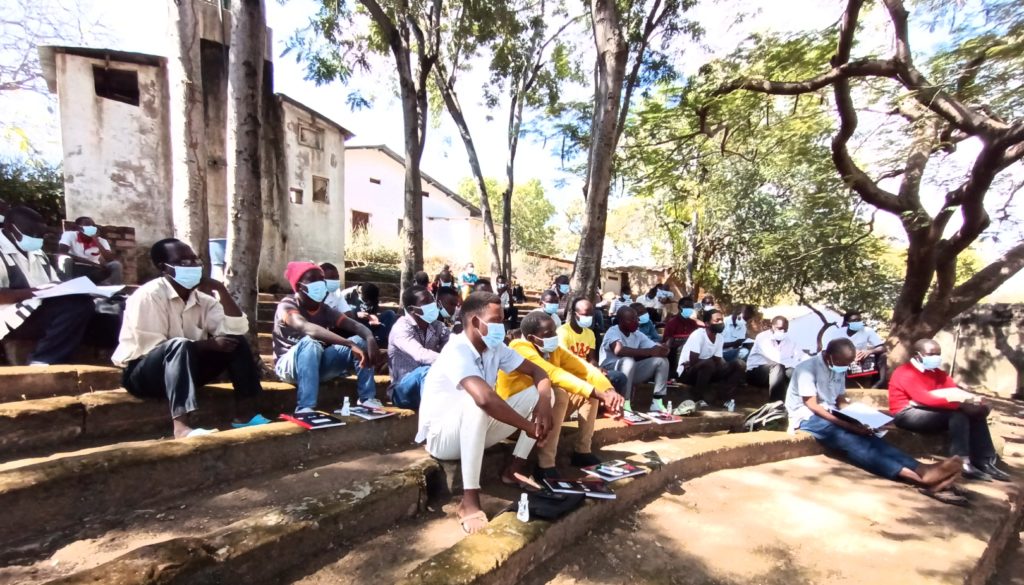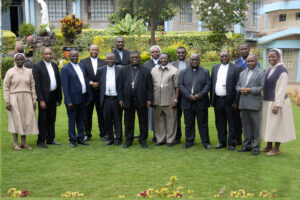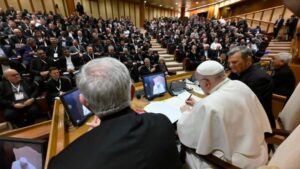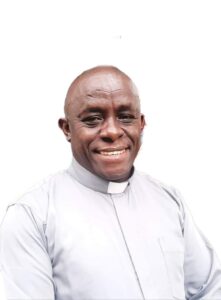MALAWI: ECM Takes HIV/AIDS Messages to Additional Three Parishes in Mangochi Diocese

Faith Leaders attending the Training
Stella Zulu
The Episcopal Conference of Malawi (ECM) has expanded its reach with the Faith Community Initiative (FCI) project, which encourages men and boys to access HIV services in order for the country to achieve its goals in the fight against the pandemic.
The project which was initially being implemented at Nankumba and Kapile parishes in Mangochi district and St. Mary’s parish in the district of Machinga, has been extended to Koche, Monkey Bay and Nankhwali parishes in Mangochi district so as to reach more men and boys with the HIV messages.
ECM therefore, trained faith leaders in the new parishes in HIV messages of hope in order for them to promote access of HIV services among men and boys by encouraging them to seek HIV testing, help them understand the benefits of HIV testing, treatment and treatment adherence and stand against stigma and discrimination about HIV, one of the barriers to testing and treatment.
Speaking during the opening of the training at Nankhwali parish, the Director of Social Development in the diocese of Mangochi, Rev Fr. Ted Chigamba encouraged the faith leaders to work hard for the project to be a success in the parishes.
“I would like to urge all of you to take the work you have been entrusted with seriously. The project is already at Nankumba, Kapile and St. Mary’s. It is because your friends are working hard that this opportunity has now reached the whole Nankhwali Deanery. Let us count ourselves blessed and utilize this opportunity for the development of the Church and the country,” said Fr. Chigamba
On her part, the Coordinator for the FCI project Mariana Nyawenda said the faith leaders are supposed to reach to men and boys in their parishes with the messages of hope which are designed to address challenges men face in accessing HIV services. She said this will help men to do well in accessing HIV services in the district which will help them live healthy lives.
“Men need to know the new approaches to HIV testing and treatment that are now available and the hope brought forward by the new choices. You are supposed to help men distinguish myths and facts about HIV so that they are no longer afraid about knowing their HIV status and starting HIV treatment. You also need to work against stigma and discrimination about HIV/AIDS which we can easily achieve because as faith leaders you are trusted and you can influence change among the people,” said Nyawenda.
The project is as a result of a worrisome fact that most men and boys do not go for HIV testing, and if found HIV positive, they do not start treatment or adhere to it as compared to women. Therefore, men and boys in Malawi are less likely to be virally suppressed than women.
The project is being implemented with funding from USAID through Health Policy Plus.


